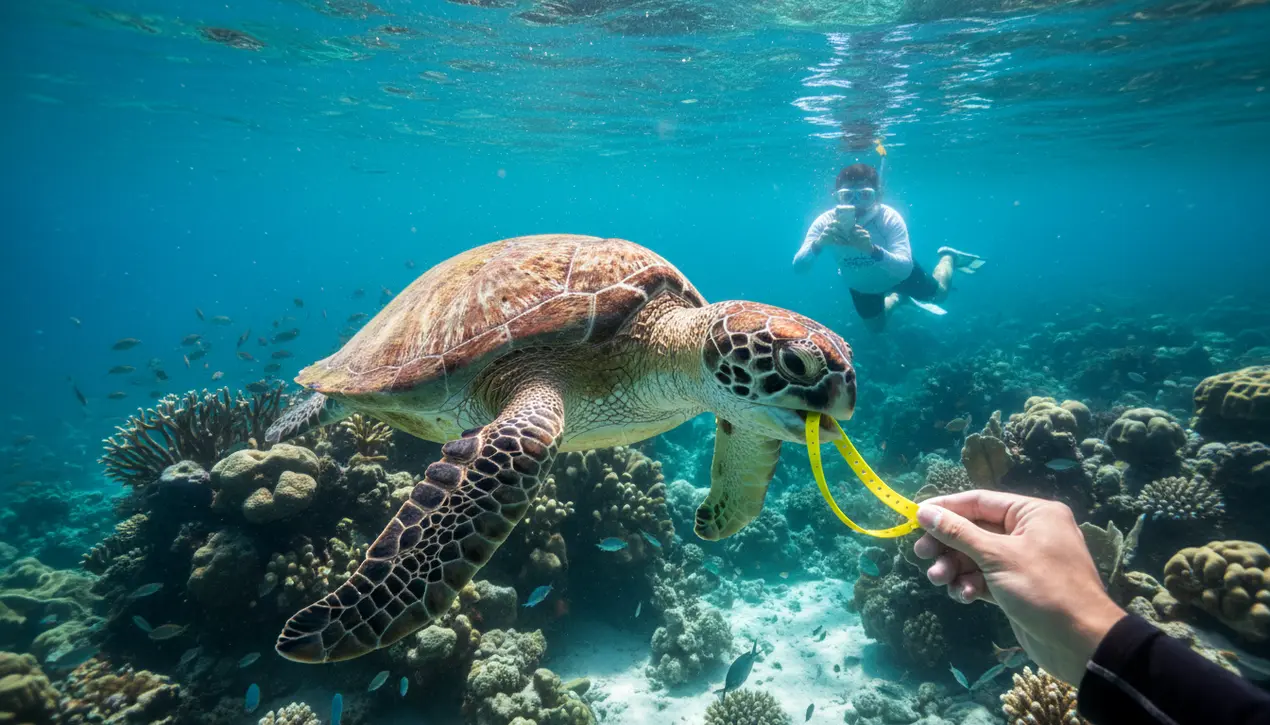
Othertravel & tourismDestinations and Guides
Tourist Faces Fine for Feeding Plastic to Sea Turtle
RA
Rachel Adams
16 hours ago7 min read1 comments
In a disturbing incident that underscores the ongoing battle between conservation and human carelessness, Thai marine park officials have launched a search for a tourist captured on video feeding a yellow plastic wristband to a vulnerable sea turtle within the protected waters of Mu Ko Similan National Park. The event, reported by a fellow snorkeler who witnessed the act near Islands 5 and 6 and subsequently alerted the park via social media this past Saturday, represents more than a simple lapse in judgment; it is a microcosm of the plastic pollution crisis suffocating our oceans.The potential consequences for the perpetrator, should they be identified, are severe, including a substantial fine and the sobering prospect of jail time, reflecting Thailand's increasingly stringent enforcement of its environmental protection laws. This is not an isolated event but part of a devastating pattern where marine megafauna—from sea turtles that mistake floating plastic for jellyfish to whales with stomachs full of shopping bags—are paying the ultimate price for our disposable culture.The Similan Islands, part of a marine national park established in 1982, are a critical sanctuary for endangered green and hawksbill turtles, creatures whose populations are already besieged by habitat loss, entanglement in fishing gear, and the climate change-induced warming of nesting beaches. When a piece of plastic enters this fragile ecosystem, it does not simply vanish; it embarks on a lethal journey, potentially blocking the digestive tract of the animal that ingests it, leading to a slow and painful death by starvation, or leaching toxic chemicals into its system.Experts from organizations like the Marine Conservation Society consistently point to public education as the first line of defense, yet this incident reveals a profound and dangerous disconnect that persists even among those who travel to witness such natural wonders firsthand. The broader context is a global ocean receiving an estimated 11 million metric tons of plastic waste annually, a statistic that translates into individual tragedies like this one. The legal response, while necessary, is ultimately a reactive measure; the proactive solution lies in a fundamental shift in human behavior, reducing single-use plastics at the source and fostering a deeper, more respectful understanding that when we enter a national park, whether on land or sea, we are guests in a home that was not built for us, and our actions must honor that privilege, not betray it.
#Thailand
#marine park
#wildlife crime
#plastic pollution
#sea turtle
#national park
#tourist behavior
#environmental protection
#featured
Stay Informed. Act Smarter.
Get weekly highlights, major headlines, and expert insights — then put your knowledge to work in our live prediction markets.
Comments
Loading comments...
© 2025 Outpoll Service LTD. All rights reserved.